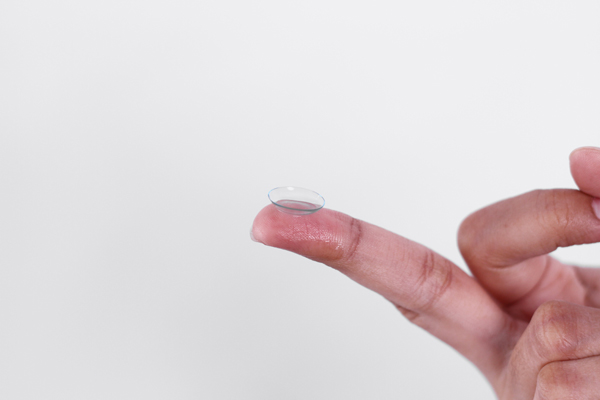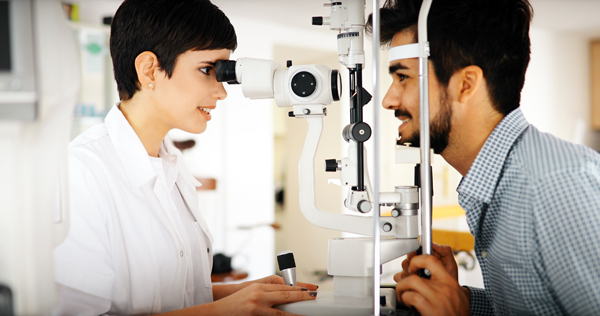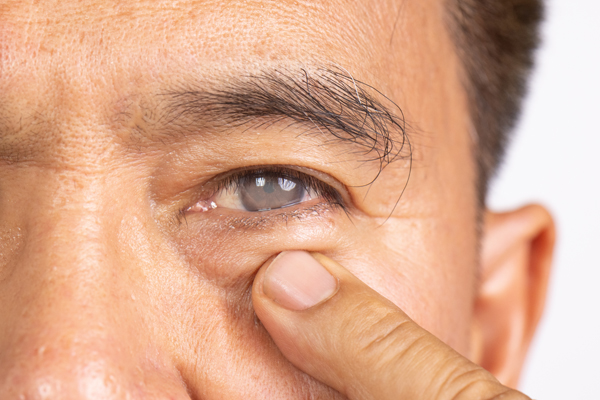A Beginner’s Guide to Contact Lenses: What You Need to Know

Contact lenses are an alternative to glasses for those looking to improve their vision. They offer aesthetic appeal, a better and more natural field of vision, and flexibility, among other benefits. Despite these benefits, contact lenses require some adjustment and must be handled with care. Here are some key things to know if you are considering contact lenses.
Type of contact lenses
The two main types of contact lenses are soft lenses and rigid gas permeable (RGP) lenses. The soft variety is most common and available in daily, weekly, and monthly wear options. They tend to be more comfortable and easier to adjust to. RGP lenses are longer-lasting (can be worn for 1-2 years), durable, and provide sharper vision for those with astigmatism and other complex issues. However, it can take longer for patients to get used to RGP lenses.
Choosing the right lenses
The first step in choosing lenses is a comprehensive eye exam to ensure a patient is a good candidate for contacts and to determine the prescription. During the appointment, the optometrist will advise the patient on the type of lens that fits their lifestyle and individual needs. In addition to lifestyle and preferences, there are several factors to consider when choosing lenses. These include cost, type of vision correction needed, and other eye conditions. For example, those who tend to have dry eyes may want a lens that offers higher moisture retention, while those with sensitive eyes may prefer daily disposable lenses.
General care tips for contact lenses
In addition to the adjustment period, knowing how to handle contact lenses is important, as this may alter one’s routine. Though care tips may vary depending on the type of lenses, the following tips apply to all contact lens wearers:
Practice good hygiene
Patients must always wash their hands with soap and water before putting in or taking out contact lenses. This simple step is very important for decreasing the chance of eye infection. Avoid oily or fragmented soaps with chemicals that can stick to the surface of a lens.
Proper cleaning and storage
Proper storage and cleaning practices are key unless the patient is wearing lenses that are disposed of after one use. Never clean lenses with tap water or saliva, as these can transfer harmful bacteria into the eye. Only use recommended contact solutions for cleaning. Store contacts in their special case at night and when not being worn. Each time the patient puts the lenses back in their case, they should fill it with fresh solution.
When not to wear contacts
Do not wear contacts while sleeping unless they are designed for overnight wear. Remove contacts if the eyes become unusually irritated, and do not wear contacts while sick, as germs can spread from hands to eyes while placing in and removing them. Contacts should be removed before showering, and individuals should not swim with contacts in unless they are wearing goggles.
Getting started with contact lenses
If you are considering contact lenses, consult an optometrist about your options. By choosing the right lens type for your lifestyle and vision needs and following proper care routines, you can enjoy clear and comfortable vision without the hassle of glasses. Call our team today to learn more about contact lenses.
Request an appointment here: https://www.carmieyecare.com or call Carmi Eye Care at (618) 374-0513 for an appointment in our Carmi office.
Check out what others are saying about our services on Yelp: Read our Yelp reviews.
Related Posts
Searching for the phrase "optometrist near me" often begins when one is experiencing irritated, dry, or light-sensitive eyes and over-the-counter solutions fail to provide long-term relief. That begs the question: how can prescription eye drops help? These targeted medicines act where symptoms start, on the eye surface and tear film. With a focused exam, an…
Cataract treatment often restores clarity and color, but vision continues to improve as the eyes heal. Knowing what to expect reduces worry and helps you prepare. With simple habits and timely follow-up, most people return to a comfortable, clear vision.After a patient receives a replacement for their cloudy lens, the world looks brighter and sharper.…
Eye exams can detect vision changes and maintain eye health. However, seasonal allergies can sometimes complicate the process. Redness, itching, tearing, and swelling, among other allergy symptoms, can easily skew results. By understanding the potential impact of seasonal allergies on eye exams, patients can take steps to ensure a more comfortable and effective visit with…
To keep contact lenses convenient and effective, it is important to take proper care of them, especially in the summer. Increased heat, outdoor activities, and exposure to water can all impact comfort and eye health. Following a few do’s and don’ts makes it possible to enjoy clear vision and protect the eyes all summer long.Summer…


